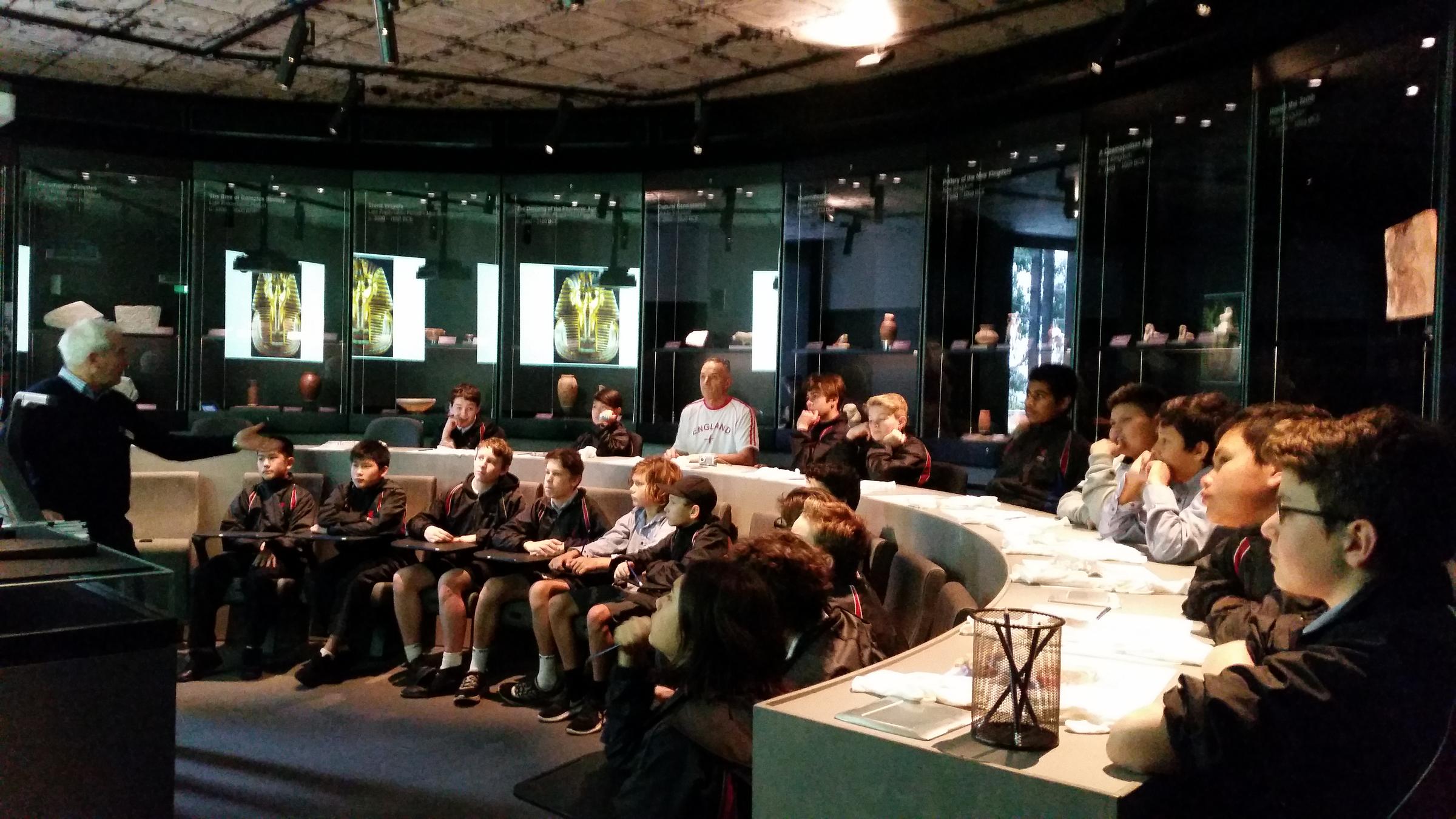Humanities
Egyptology

Humanities
Egyptology
by Kaito Toyama, 7SC
Off we went on our excursion to Melbourne University to uncover and learn new things about ancient Egypt at their Classics and Archaeology Collection. This was our chance to go see the artefacts and displays of Melbourne University's newest exhibit, thanks to Dr Andrew Jamieson, Senior Lecturer and Curator of Classics and Archaeology, and Sharon, who is the manager of the “Object Based Learning in Schools Project”.
To start it off, Dr Andrew explained about his discoveries and travels through the ancient wonders of Egypt. He was very curious about our inquiry project at school and then told us of his education in archaeology. There were activities to test us on our knowledge of ancient Egypt and question sheets for the artefacts around the room.
During the next activity Sharon tested our knowledge of gods of Egypt and we had to match descriptions with pictures of the gods which further helped our learning. I like the god Maat, who is the symbol of justice, balance and order, and has been in several rituals like the weighing of the heart.
These couple of hours were great for our study, as we went on discussing hieroglyphics and the Rosetta stone, while we questioned Andrew and Sharon about their experiences through Egypt. I enjoyed listening to some of their stories of Egypt as I actually learnt more about the “Book of the Dead” which I've been working on as my investigation topic. I'm really thankful to both archaeologists for this chance to look into ancient Egypt in more detail.


by Liam O'Donavan, Year 11
On 2 September, five other students and I had the opportunity to participate in a role-play Association of Southeast Asian Nations (ASEAN) summit at Melbourne University, thanks to Tim Watts, the local Federal Member of Parliament, who co-sponsored the excursion. Each of the 10 schools in attendance represented one of the ASEAN member states, including Australia, in an attempt to pass a treaty. Naturally, Footscray was selected to represent Vietnam.
The first part of the day was spent as an introduction to the history of ASEAN and international relations in Southeast Asia.
Though brief, the speaker presented a timeline of events involving ASEAN from its inception in 1967 to now. Following the introduction, two representatives from each school stood on stage to talk about their respective country’s stance and policies on the three issues of focus: climate change, refugees and trade. Harris Langham and Maddison Lewis made an excellent speech representing Vietnam.


Following this, we split into three groups, each with two members from every school, to discuss one of the three focus issues - climate change, terrorism and trade. Assuming the role of Vietnamese delegates for refugees, Harris and I made contributions based on Vietnam’s policy on refugees to an ASEAN treaty which was being scripted. Both of the other groups returned with their own clauses. After enjoying hot drinks, each group presented their clauses, which were voted on by every school present. When the convention had been decided, each school was able to vote for whether the convention in its entirety was to be passed. Although we were unsuccessful in overturning the convention, as it contradicted “our” national policies, it did shed light on the ins and outs of reaching a political agreement. Thanks to Dave Browning and Nick Price for organising the event.